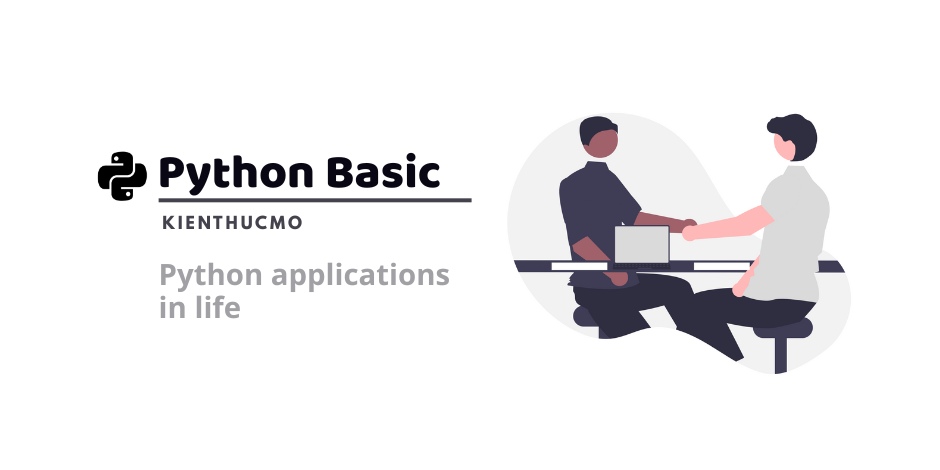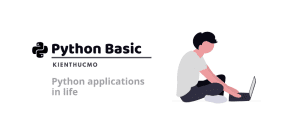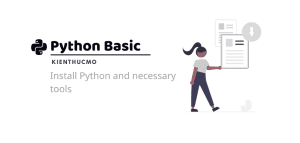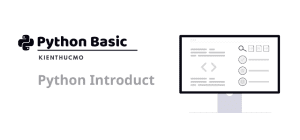In the digital era, programming has become one of the most important skills, not only for software engineers but also for many other professions. Mastering a programming language is no longer just a work tool; it is a key that opens new doors in one’s career.
Among the hundreds of programming languages available, Python stands out as a top choice. Its simplicity, flexibility, and popularity make Python an ideal “companion” for both beginners and tech experts. This article will analyze why Python is favored by employers, the related career positions, salaries and prospects, as well as how to start a career with Python.
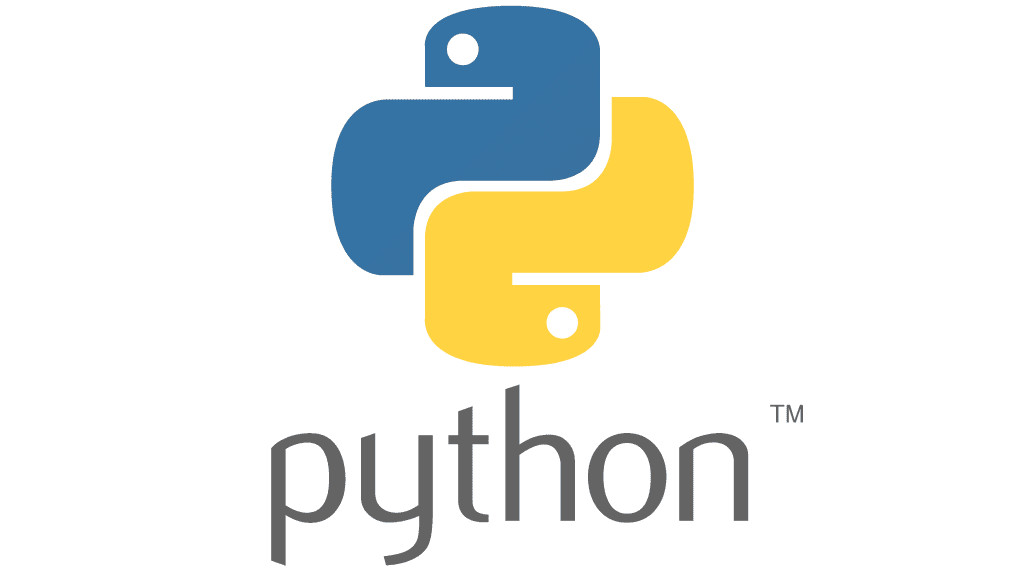
1. Why Python is Popular in Recruitment
Python is considered one of the easiest programming languages to learn. Its syntax, which is close to natural language, allows beginners to quickly get started. However, what truly makes Python special is its wide applicability.
- Extensive Libraries: Python has a vast ecosystem with tens of thousands of libraries, supporting everything from data analysis and artificial intelligence to web development and IoT.
- Trusted by Major Corporations: Google, Facebook, Instagram, Netflix, NASA, Spotify… all rely on Python for critical systems.
- High Popularity Ranking: According to the TIOBE index and Stack Overflow surveys, Python consistently ranks among the top most used and loved programming languages.
- Flexibility: Python can be used for a wide range of purposes, from simple automation to building large-scale artificial intelligence systems.
Therefore, mastering Python means having a versatile skill that can easily adapt to a variety of job positions.
2. Popular Career Positions with Python
Python opens up many attractive career paths. Some typical positions include:
- Python Developer: Builds and maintains applications, backend services, and APIs. This is the most common position.
- Data Engineer: Designs, manages, and optimizes large data pipelines, and builds data storage and processing systems.
- Data Scientist: Uses Python to analyze and visualize data, and build predictive models to support decision-making.
- Machine Learning Engineer: Develops and deploys AI models into real-world products, such as chatbots and recommendation systems.
- Data Analyst: Uses Python to extract, clean, and analyze data, supporting business departments and management decisions.
- Web Developer: Develops websites or web applications using Django, Flask, or FastAPI.
- Automation Test Engineer: Writes software testing scripts to ensure product quality.
- IoT / Embedded Systems Specialist: Uses Python to program embedded devices, robots, or smart home systems with Raspberry Pi.
It is evident that Python is not limited to a single field; it spans across multiple industries.
3. Opportunities in Specific Fields
Not only diverse in positions, Python is also present in many important sectors of life and the economy:
- Information Technology: From backend development to DevOps, Python helps build systems quickly and efficiently.
- Finance – Banking: Risk analysis, stock market modeling, and fraud detection.
- Healthcare: Supports medical image analysis and disease prediction based on big data.
- Education: Develops learning tools, student assessment systems, and analyzes academic data.
- E-commerce – Media: Analyzes customer behavior, builds product recommendation systems, and analyzes news trends.
Thanks to its presence across many industries, Python has become a valuable “career-transition” skill, even for those not directly working in the tech sector.
4. Salary and Career Prospects
“`html
According to Glassdoor, the average salary for a Python developer in the U.S. ranges from $90,000 – $120,000 per year. More specialized positions such as Data Scientist or Machine Learning Engineer can reach $130,000 – $150,000 per year.
“`
In Vietnam, the salary for a Python Developer at the junior level is usually from 12 – 18 million VND/month, while senior positions can reach 30 – 50 million VND/month, and even higher for roles related to data and AI.
With the explosion of data, the growing development of AI, and companies shifting toward automation, the demand for professionals skilled in Python is expected to continue rising strongly over the next 5–10 years.
Complementary Skills Needed Beyond Python
Although Python is an important foundation, to stand out in recruitment, you need to equip yourself with some complementary skills:
- Databases: SQL and NoSQL for working with real-world data.
- Mathematics and Statistics: especially important in the fields of data and AI.
- DevOps and Cloud: knowledge of AWS, GCP, Azure to deploy systems at scale.
- Soft skills: communication, problem-solving, critical thinking, teamwork – essential factors in the modern workplace.
These skills help you not only excel technically but also have the capability to participate in the end-to-end product development process.
5. How to Start a Career with Python
To build a career with Python, you can follow this roadmap:
- Master the basics: learn syntax, data structures, and object-oriented programming.
- Practice with small projects: write automation scripts, build mini web applications, perform small data analysis.
- Build a portfolio: upload projects to GitHub, write blogs sharing your experiences.
- Specialize in a field: AI, Data Science, Web, IoT.
- Join communities and open source: contribute to projects, participate in forums, join hackathons.
- Keep updating and learning: follow new technologies, libraries, and tools.
Online courses on Coursera, edX, Udemy, along with certifications such as PCAP (Certified Associate in Python Programming) or TensorFlow Developer Certificate, are also good options to prove your competence.
6. Communities and Global Opportunities
Python has a massive global user community, from forums like Stack Overflow, Reddit r/Python, to annual conferences like PyCon.
The growth of remote work also opens opportunities for Python developers in Vietnam or any country to participate in global projects. Many freelancers have leveraged Python skills to work through platforms like Upwork, Freelancer, and Toptal.
As a result, opportunities are no longer limited by location – Python truly is an “international career passport.”
7. Conclusion
Python is not just a programming language, but a key that opens up a multitude of career opportunities in the digital era. From software development, data science, artificial intelligence, to finance, healthcare, and education – Python is everywhere and increasingly proves its value.
For beginners, Python is an accessible gateway. For experts, Python is a powerful tool to solve the most complex problems. More importantly, mastering Python means possessing a global skill that can be applied in any country or field.
In the context of a competitive job market, investing time in learning Python is a strategic investment for your career – today and in the future.
9. References
- Python Software Foundation – Python Official Website: https://www.python.org
- Introduction to Python Programming – OpenStax: https://kienthucmo.com/introduction-to-python-programming/
- Van Rossum, G., & Drake, F. L. (2009). The Python Language Reference Manual. Network Theory Ltd.
- Lutz, M. (2013). Learning Python (5th Edition). O’Reilly Media.
- Sweigart, A. (2015). Automate the Boring Stuff with Python. No Starch Press.
- Django Software Foundation – Django Project: https://www.djangoproject.com
- Flask Project – Flask Web Framework: https://flask.palletsprojects.com
- McKinney, W. (2017). Python for Data Analysis (2nd Edition). O’Reilly Media.
- Scikit-learn Documentation – https://scikit-learn.org
- Real Python – Python Tutorials: https://realpython.com
